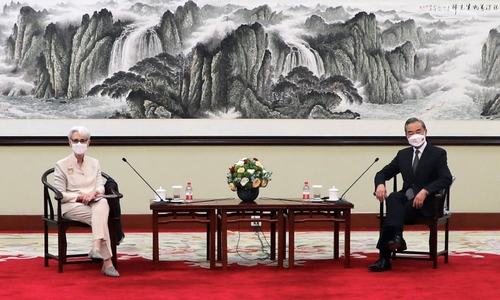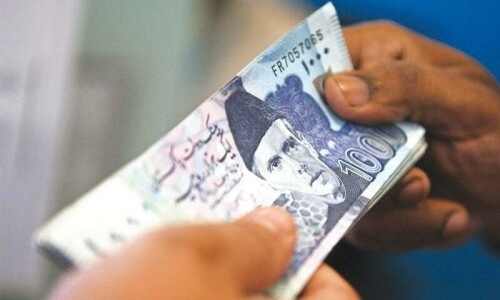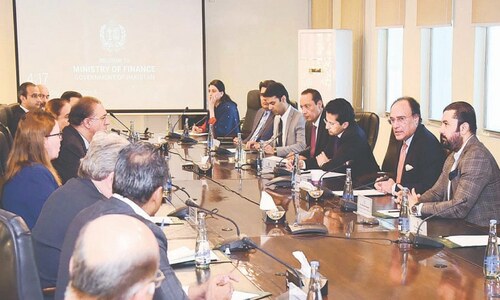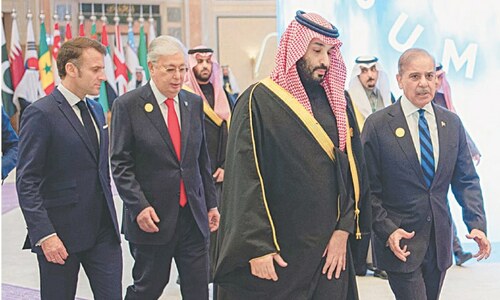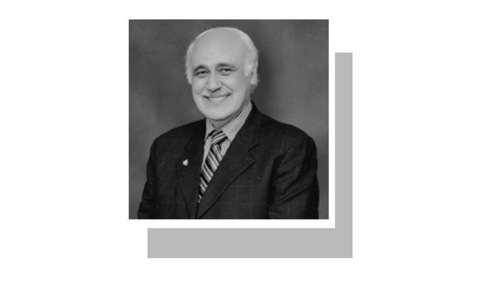WASHINGTON: President Joe Biden announced on Thursday that Hong Kong citizens currently in the United States who fear for their safety amid the political crackdown back home will receive temporary safe haven.
Biden said the move recognises “the significant erosion” of rights and freedoms in Hong Kong by the Chinese government.
“By unilaterally imposing on Hong Kong the Law of the People’s Republic of China on Safeguarding National Security in the Hong Kong Special Administrative Region, the People’s Republic of China has undermined the enjoyment of rights and freedoms in Hong Kong,” he said in a statement.
Biden cited the “politically motivated arrests” of more than 100 opposition politicians, activists and protestors on charges under the national security law, including allegations of secession, subversion and terrorist activities.
More than 10,000 others have been arrested in relation to anti-government protests, he said.
The new decision allows Hong Kong residents currently in the United States to remain for 18 months and to be allowed to work.
“This action demonstrates President Biden’s strong support for people in Hong Kong in the face of ongoing repression by the People’s Republic of China, and makes clear we will not stand idly by as the PRC breaks its promises to Hong Kong and to the international community,” White House press secretary Jen Psaki said.
Biden announced the Hong Kongers present in the United States as of Thursday would be granted “deferred enforced departure,” (DED) similar to “temporary protected status” (TPS), which is given to foreign nationals stuck in the United States due to natural disasters or political upheavals back home.
TPS is a status assigned to countries by the Department of Homeland Security, while DED can be declared by the president under his own powers, according to a US government website. Neither status is permanent but can be renewed regularly.
China introduced the national security law in Hong Kong on June 30, 2020, giving Beijing more power over the territory’s judiciary and criminalizing many types of political activities.
Critics say it is being used to undermine the “one country, two systems” architecture for the city’s governance, established when Britain handed its former colony back to China in 1997.
The arrests of opposition politicians has stifled free speech and left activists in fear of detention or other punishment, including those overseas.
In June, Hong Kong police raided the offices of the feisty pro-democracy newspaper Apple Daily, shutting it down and arresting key executives.
Under the national security law, US Secretary of State Antony Blinken said, “Hong Kong’s promise of democracy has dimmed.” “The PRC has fundamentally altered the bedrock of Hong Kong’s institutions and suppressed freedoms of Hong Kongers,” he said in a statement.
The decision to grant Hong Kongers safe haven is likely to further sour relations between Beijing and Washington, as the two sides face off over China’s contested territorial claims to Taiwan and islands in the South China Sea, US allegations that China methodically steals American intellectual property, and the sweeping repression of Uyghurs and other minorities in China’s western Xinjiang region.
China believes that the United States seeks to repress its metamorphosis into a global power.
When a top US diplomat, Deputy Secretary of State Wendy Sherman, visited Beijing in July for talks, Vice Foreign Minister Xie Feng said that Washington must stop seeing China as an “imaginary enemy.”
Published in Dawn, August 6th, 2021


